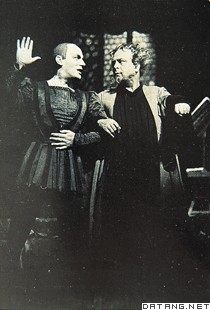1) Gounod's Faust


古诺《浮士德》
2) Goodnow


古德诺
1.
Goodnow s Political Ideas Revealed in His Two Papers;


从古德诺的两篇英文文章看其真实思想
2.
A New Exploration on Goodnow's Theory of Common and Its Significance


古德诺政治与行政“公地”思想及其意义
3.
Therefore it’s particularly important for us to understand the Politics and administration dichotomy better, to carry out Goodnow’s politics and administration dichotomy systematizely.
因此,对古德诺政治与行政二分思想进行系统的梳理对于我们更好的理解政治与行政二分显得尤为重要。
3) Frank Johnson Goodnow (1859~1939)


古德诺,F.J.
4) Faust
[英][faust] [美][faʊst]


《浮士德》
1.
On Carnivalesque Feature of the Faust s Plot Structure;


论《浮士德》情节结构的狂欢化特色
2.
New Research of Faust——Christian interpretation of the masterpiece;


《浮士德》新探——基督教圣经视野下的文本解读
5) Faustus
['faustəs,'fɔ:-]


浮士德
1.
The singer who searches for the spiritual homestead——A groping for The Tragic History of Doctor Faustus;
寻找精神家园的“歌手”——《浮士德》探幽
2.
The Dispute on the Spirit between Tragedy and Comedy in Goethe s Faustus;


歌德《浮士德》的悲、喜剧精神之辨
3.
Myth Tradition in Western Literature and The Tragical History of Dr Faustus;


西方文学中的神话传统与《浮士德博士的悲剧》
6) Faust
[英][faust] [美][faʊst]


浮士德
1.
The Prototype of the "Blind" Complex in Goethe s Doctor Faust;


歌德《浮士德》“瞎眼”情结原型解读
2.
A Comparison between Lisao and Faust——the humanistic perspectives of Chinese and Western intellectuals;
《离骚》与《浮士德》对读说要——中西知识分子的人学视野
补充资料:《浮士德》
| 《浮士德》 Faust 德国诗剧。作者歌德,创作于1773~1831年之间。1806年始发表第一部,1831年完成第二部,歌德逝世后的1832年始发表。《浮士德》与荷马史诗、但丁的《神曲》、莎士比亚的《哈姆雷特》并称为欧洲古典文学4大名著。浮士德是16世纪德国民间传说人物,与魔鬼打赌定约:如感到满足就让魔鬼取走生命。魔鬼给他青春,他为知识、爱情、事业、理想、美而创造了很多奇迹,最后他双目失明,听到人们为他掘墓的声音,以为人人都在劳动改造自然的理想社会来临,感到满足,灵魂为魔鬼夺走。歌德把他塑造成一个为探索真理,追求人类最高理想而奋斗不息的人物。他从个人生活小世界进入社会生活大世界,历经书斋、爱情、宫廷、美的幻梦、改造大自然等阶段,最后悟出生活的智慧:“要每天每日去开拓生活和自由,然后才能作自由与生活的享受。”浮士德一生追求真理的经历,反映出从文艺复兴到19世纪初德国进步力量与反动力量之间的斗争。《浮士德》作为剧本没有严密的戏剧结构,而是一部熔戏剧、诗歌、小说于一炉的剧作。
|
说明:补充资料仅用于学习参考,请勿用于其它任何用途。
参考词条
